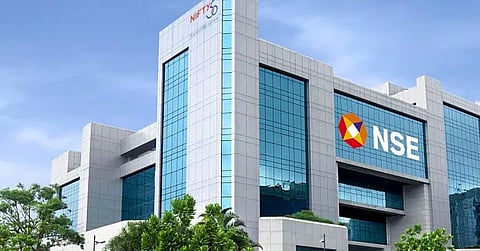This suggests that the near-monopoly exchange continues to dictate terms to the regulator. Effectively, NSE is cherry-picking its punishment by claiming compliance with some parts of SEBI's orders, while challenging others. It has challenged the disgorgement penalty, but done nothing to fix accountability of senior employees. An ISB (Indian School of Business) investigation quantifying the unlawful gains earned (more on this later) by brokers is still in limbo. But, hey, NSE says it has complied with the six month 'prohibition' against issuing new securities.
This is a disingenuous argument since the Exchange was in the throes of a change in top management with two key persons from the founding team having left after 23 years, along with several others. Moreover, there has never been any indication that NSE had not challenged the entire SEBI order, or that it had accepted and complied with any part of it, until recently.
I asked NSE's managing director, "Can you pick and choose which part of the punishment is acceptable? Had this been conveyed to SEBI when the SAT appeal wasn't filed?"According to the Exchange's spokesperson, "As is legally permissible, NSE has appealed only certain parts of the SEBI orders dated April 30, 2019 and has complied with certain other directives in the orders such as not accessing public markets for 6 months etc. We have kept SEBI informed of ongoing compliances relating to matters in the SEBI orders that we have not appealed."
Is this a tacit confirmation by the finance ministry that the co-location scam is Rs75,000 crore? Although all the data is available, SEBI has not yet confirmed any figure and an investigation by the business school, ISB Hyderabad, has been in limbo. But MoF seems to accept in Parliament that the co-location scam was a massive Rs75,000 crore—a number we have not been able to verify. If so, how is the regulator is willing to permit NSE to get listed after choosing to decide which part of the order it is willing to comply with.
Many lawyers who I spoke to are surprised at NSE's claim that it had accepted, or complied with, 'certain' directives or that a regulated entity is entitled to pick and choose. It is another matter that the passage of time led to some automatic compliance.
I understand that SEBI has issued a total of 15 show-cause notices to the Exchange and its employees. But apart from SEBI's orders, there is very little information with regard to the co-location scam in the public domain. In fact, the only details available are in response to questions from members of Parliament (MPs).
Consider this response on
20 July 2021. Arvind Sawant, MP, had asked details of progress on the first information report (FIR) registered by the Central Bureau of Investigation (CBI) "
against NSE in the Rs75,000-crore Colo scam" (emphasis added). Pankaj Chaudhary, minister of state for finance (MoF), in a written statement, replied, "CBI has registered a case in the matter of preferential access at the co-location facility of NSE, vide RC No.AC I 2018A0011 dated 28 May 2018… Presently, the case is under investigation." See
http://164.100.24.220/loksabhaquestions/annex/176/AU59.pdf
